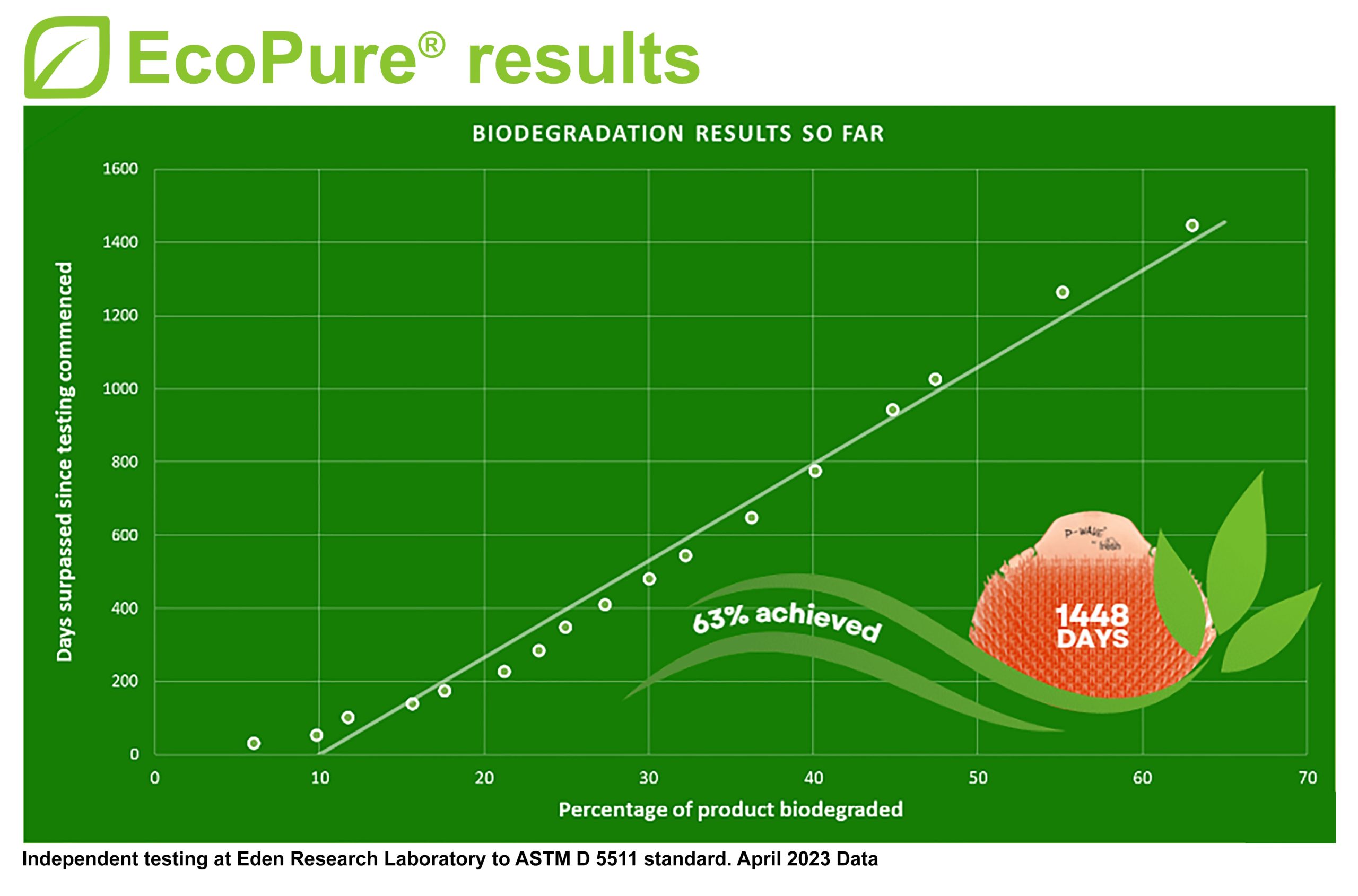
Enhancing freshness and improving sustainability in the workplace
“What happens if our recyclable products still end up in landfill?”
Improving the air quality and freshness throughout all premises is essential and a pleasant fragrance can be powerfully emotive, setting the mood, and creating a memorable experience. But what is the environmental impact of the products we use?
We talked to Mark Wintle, Sales and Marketing Manager at leading fragrance and air-freshening specialist P-Wave®.
Designed for recycling
The first step is to ensure that air-freshening products – and their refills – are recyclable, and that means they need to be designed for recycling.
However, we know that in some cases products are not collected for recycling at the end of their life. This can be due to time-pressures on staff or to inadequate collection systems. So, that’s why we began to think some time ago about “what happens if our recyclable products still end up in landfill?”
And that is why – since 2019 – we have been adding an innovative additive called EcoPure® into some of our plastic products, including our highly popular and successful Slant6 urinal screen, and the refills for our recently introduced ourfresh-e 30-day plug-in air freshener. Currently, we are in the process of introducing it into our trough screens.
100% biodegradation in landfill in 10 years
Our 100% recyclable urinal screens are manufactured using a polymer called EVA. We continue to encourage and positively recommend that our urinal screens are recycled at the end of their life. The challenge for us is that recycling programmes vary widely from region to region and there is no guarantee that the products will be recycled. EcoPure® simply provides a fail-safe.
We have just concluded the latest in a series of ongoing tests and can report that we have achieved 63% biodegradation of our Slant6 urinal screens in less than four years of testing. Independent long-term testing has been carried out at the Eden Research Laboratory in the United States, using the ASTMD5511 test standard – which simulates landfill conditions. We are delighted that the laboratory predicts we will achieve 80% biodegradation by 2025.
Our biodegradation results have been accelerating over the past 18 months, and we are continuing to monitor and update every six months. Based on the results so far – and factoring in some slowdown towards the end of the period, we expect to have products which are fully biodegradable in landfill in less than 10 years.
As a brand that takes responsibility for the environment very seriously, we are on a crusade to make our products as environmentally-friendly as possible – and EcoPure® is just the beginning of our fully sustainable product evolution.
What is ‘biodegradable’?
The word biodegradable is widely used but seldom explained or properly understood.
Biodegradation is defined as: ‘a process by which microbial organisms transform or alter (through metabolic or enzymatic action) the structure of chemicals introduced into the environment’.
The biodegradation process eventually breaks down everything from garden waste to crude oil. However, the rate at which we are producing waste far outpaces the rate of natural biodegradation, leading to an unsustainable state. As landfills fill up at record rates, air, water and soil pollution is increasing.
Common plastics biodegrade very slowly. So slowly, in fact, that many are considered to be non-biodegradable. Plastic biodegradation rates vary widely according to the type of plastic and most plastics can take up to 1,000 years to biodegrade in a landfill or natural environment. Estimates of degradation time for plastic bags range from 100 to 500 years, while plastic bottles are reported at over 200 and up to 450 years.
The normal plastic biodegradation process can take hundreds and sometime even thousands of years to complete, but EcoPure® accelerates the bio-degradation of treated plastics in microbe-rich environments.
EcoPure® accelerates the natural biodegradation of plastic, so microbes actually eat it, leaving only biomass behind. This should not be confused with oxo-degradable plastics which are not recyclable and can break down into thousands of ‘microplastics’.
Plastics treated with EcoPure® have unlimited shelf life and remain 100% recyclable. They are considered completely non-toxic and are FDA approved for food-contact in the United States.
With years of experience and a consultative approach, we can make recommendations on how best to maintain great smelling premises, whilst also helping to protect the environment.
Read more of the latest news from us
